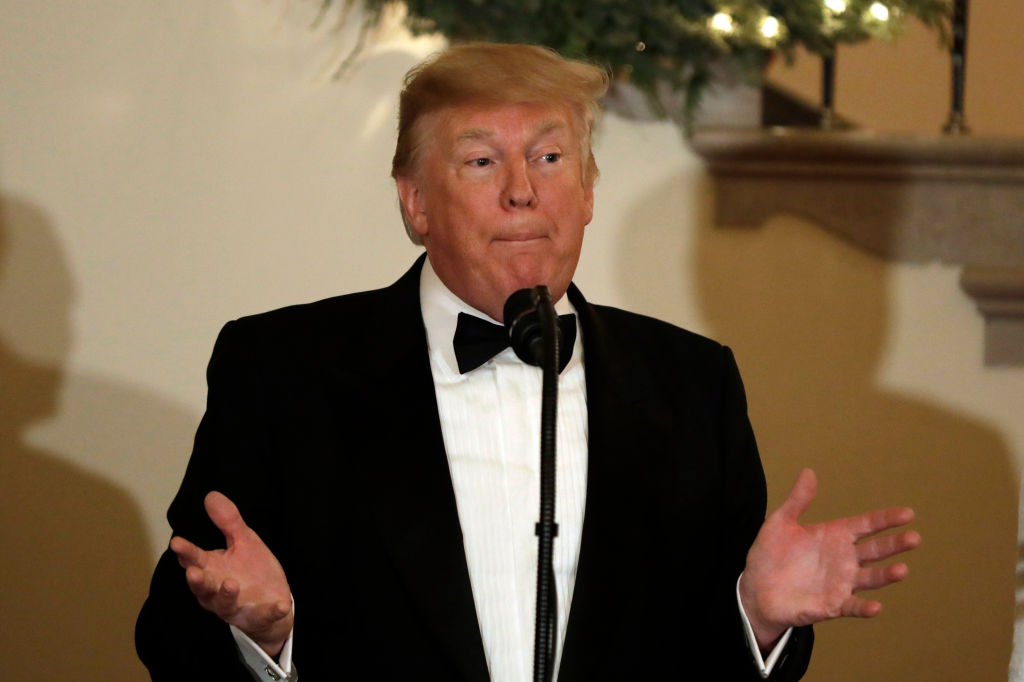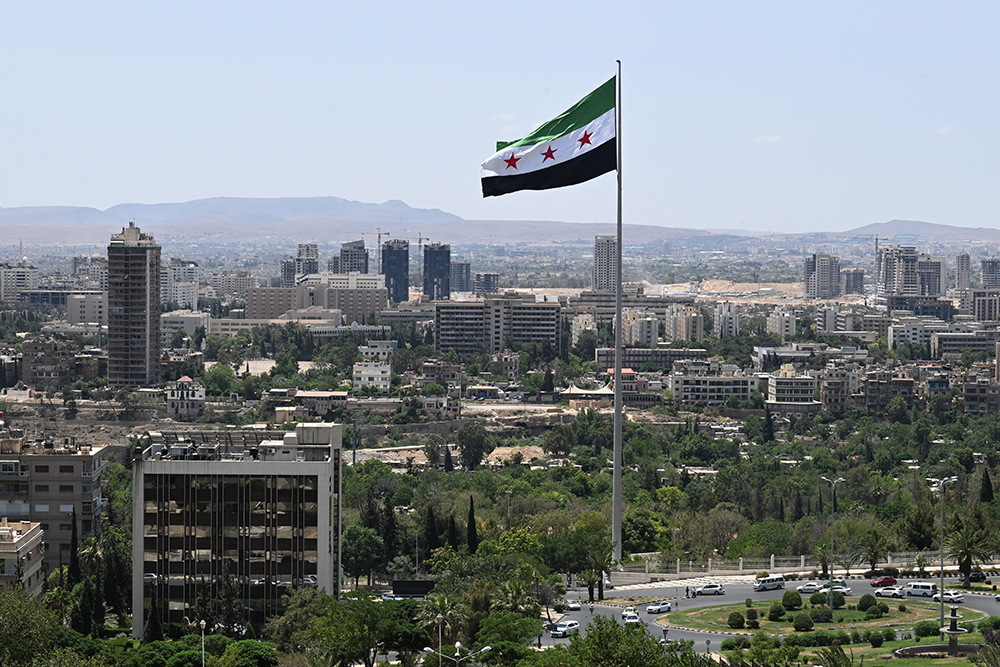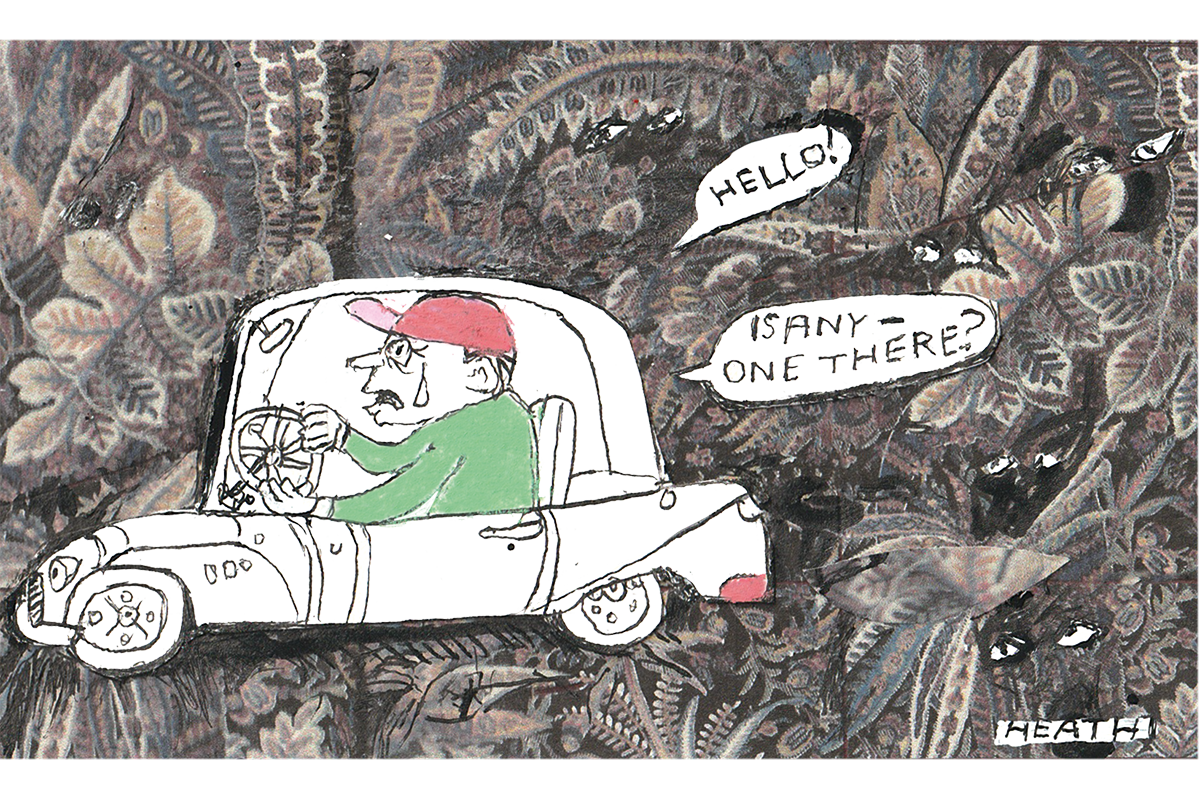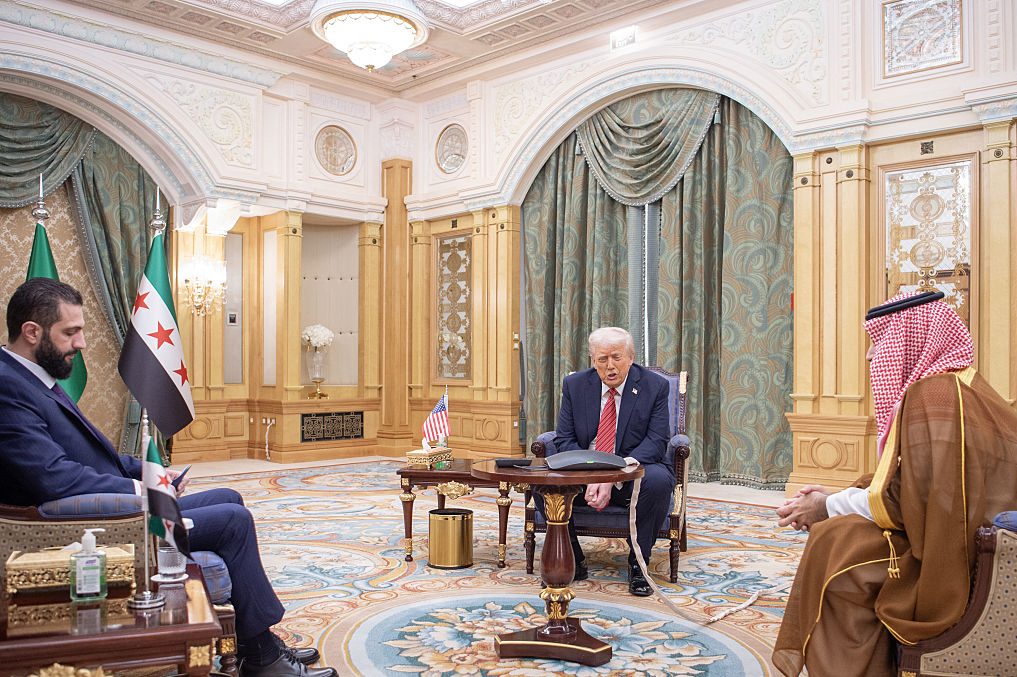Donald Trump is the only peace president the United States has had since the end of the Cold War, and his enemies hate him for it. ‘Peace president’ is a relative term, of course, but as yet there is no Trump war comparable to George H.W. Bush’s Persian Gulf War, Bill Clinton’s war against Yugoslavia, George W. Bush’s invasions of Afghanistan and Iraq, and Barack Obama’s gruesome regime-change bungle in Libya. Instead, the most conspicuous foreign-policy achievement of the Trump administration to date is de-escalation on the Korean Peninsula, along with the stamping out of ISIS. And with ISIS broken, Trump is bringing America’s soldiers home from Syria in victory – a startling contrast to the interminable, slow-motion defeats that are characteristic of most other presidential wars of the last 25 years. Afghanistan, to name one – a war-zone that everyone fully expects the enemy to reconquer the minute US forces leave.
Peace, after all, means two things: either not fighting in the first place or else fighting and winning, so that the conflict ends. Curiously, America’s political establishment, in what purports to be Trump’s party as well as in the party opposed to him, finds peace of either kind unacceptable. So the president’s announcement of a withdrawal of US forces from Syria has been met with predictable outrage from Democratic House Speaker-to-be Nancy Pelosi and from Republican Senators like Cory Gardner and Marco Rubio. The elite pundit class reflects exactly the same range of opinion – or rather, lack of range, with formerly antiwar left-wing commentators joining NeverTrump Republican writers in condemning the president for winding up a military intervention.
The contrast between the alarm felt by elites over this move by Trump (and over his efforts at peace with North Korea as well) and their gushing enthusiasm for Trump’s missile strikes against Syria last year is revealing. As personally reviled as Trump is, he won instant accolades when he seemed to be on the verge of committing himself to the same interventionist path his recent predecessors have followed. The one thing powerful enough to annul the political and opinion elite’s hatred for Trump is that same elite’s love of military intervention. Peace is antithetical to the anti-Trump elements in Washington, whether they are Republican or Democratic, liberal, progressive, or supposedly conservative.
Why should that be the case? And why is Trump himself an exception to the rule that America’s leaders prefer war to peace – ongoing war to concluding war? Nobody, of course, thinks of himself as a warmonger, and America’s anti-Trump leadership class certainly does not believe itself to be militaristic. But again, look at the reactions, and look at the actual policies. What most of Trump’s critics in the political and opinion establishment appear to believe, as shown by their actions and reactions, is that America must be in a condition of ceaseless low-level conflict almost everywhere in the world, and when conditions are in flux, it’s better to increase the use of force than to reduce it, always
The mythology that accompanies this interventionist disposition claims the ‘Surge’ in Iraq during George W. Bush’s second term as a success and points to Obama’s drawdown of US forces in that country as a failure that facilitated the rise of ISIS. But the mythology begs the very question: if the Surge worked, why couldn’t the troops come home? Why has it never worked when it’s been tried in Afghanistan? And what brought about the rise of ISIS in the first place if not the influx of Islamists and Hussein Ba’athists into Syria as refugees from the Iraq War? By the logic of Trump’s interventionist critics, nothing less than a permanent ‘Surge’ to occupy the planet would suffice to establish peace – a peace would require continuous police duty on the part of non-elite Americans serving in the armed forces. This is not an attractive image to most Americans – this is not the purpose they envision for their country, and it’s not a condition to which the only alternative is anarchy and terror at home. Most wars in most places have nothing to do with us, and securing our own borders and policing our own communities against extremist violence makes more sense than trying to do it everywhere else.
There is nothing natural, inevitable, or commonsensical about the interventionist worldview that the American elite holds. It’s a conditioned reflex of the mind, and it’s a freakish one. So where does it come from?
It comes from the same administrative and technocratic spirit that virtually defines the self-understanding of America’s political and opinion elite at home. This elite views other people’s lives in terms of problems, for which the elite’s calling is to provide knowledgeable solutions. But knowledge only comes from the top, and it can never be absorbed by those further down or on the outside: in theory, the technocratic ideology may be egalitarian, but the failure of egalitarianism is what serves to keep the technocrats in existence as a class. They are needed. They will save you from eating the wrong food or smoking the wrong plants (tobacco bad, marijuana good, or vice versa), or having the wrong attitudes toward people of different colors or habits from yourself. Just as society must become ever more regulated at home – if not always regulated by government, then regulated by enlightened authority in the private sphere, even the enlightened Twitter mob – so the world must benefit from our enlightened regulation as well. Within a nation, civil society and government can act with a minimum of violence to secure compliance, because most compliance is based on habit and the desire for social acceptance (or the fear of ostracism, at any rate).
But outside of a nation, legal and cultural controls fail, which leaves only the control that can be established by force. And the work is never-ending – just as the administrative state and social conscience must be present everywhere and always wakeful, in foreign lands it is military force that must always be at hand and whenever possible expand. There is a profound truth in the recollection that the Vietnam War was the Great Society pursued in the paddies of Vietnam. Each of the post-Cold War presidents before Trump has likewise had a domestic vision of benevolent technocracy that runs parallel with an interventionist foreign policy. Not coincidentally, Trump is a peace president just as he is a disruptor and contemner of bureaucratic rationality and rules – as well as of the ‘norms’ of polite and politically correct society. As far as the elite is concerned, Trump is pure irrationality, and that is bane to a class that exists for the very purpose of making life rational (as the best credentialed authorities define rationality).
Bureaucratic regulation is not exactly the same thing as socially enforced conformism, and neither is identical with military occupation and the suppression (or protraction – but never resolution) of foreign conflicts. But the spirit of benevolent expert control that is ubiquitous among America’s ruling class, but for renegades like Trump, is common to all three endeavors. And the same emotional matrix is engaged by offenses against the sacred rationality of all three: to stop a war, to end a war, is as bad as rolling back a social revolution or a decade or regulatory growth. Indeed it’s worse, because whereas Republicans and Democrats have different technocratic recipes for law and social attitudes at home, they converge when it comes to the benighted state of the rest of the world, which is neither capitalist enough nor humanitarian enough – nor simply stable and efficient enough – to satisfy elite Americans. So war brings our elite together. Unfortunately for them, it does not unite their hearts with those of the American people. The people want peace, and they want freedom – they want Donald Trump to succeed.

























